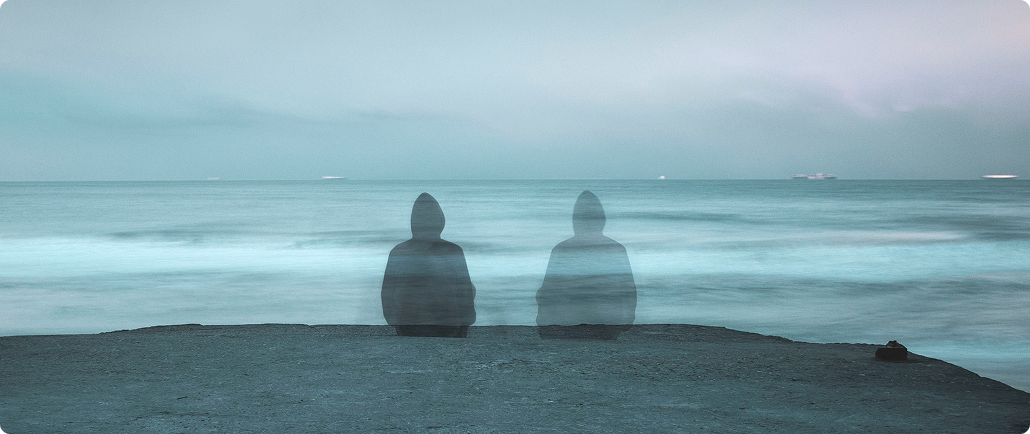
Why Do I Feel Like Everyone Hates Me?: What to Do When You Feel Hated

One-on-One Counseling in Arizona for Life's Challenges
Every day is a chance to start over. Our trauma-informed therapists will meet you where you are — in person or online — so you can process your experiences and become the person you want to be.
Have you ever felt like everyone hated you? You’re not alone.
This all-consuming thought is common among people with anxiety, mood disorders, or self-esteem issues. Other times, we feel it simply because we’re having a bad day or are hungry, angry, lonely, or tired (HALT).
Thankfully, it’s unlikely that the people in your circle actually hate you. The thought likely stems from how you feel and think about yourself.
Learning why this feeling occurs helps you learn how to change your mindset. It can be debilitating to think everyone shares the same negative sentiment towards you. But remember, you hold value as a person, and others see that too.
Why Does It Feel Like Everyone Hates Me?
Sometimes, a person’s worries or fears can outweigh logic, causing them to feel overwhelmed or distressed. Thoughts like “everyone hates me” form as a way of coping with difficult life events and stress. However, it can cause people to adapt their thinking in ways that aren’t rational or healthy. It's a common cognitive distortion.
This scenario mainly concerns perception, perspective, and internal beliefs.

Perception vs. Perspective
Perception is what we interpret. It is our understanding of a given scenario and the meaning we assign to a stimulus. Perspective is our point of view.
So what comes first? Most people think their perspective (point of view) determines their perception (what things mean), but it’s the other way around. A person’s perception of reality controls their perspective because we create them from our beliefs.
Internal Beliefs
Beliefs occur in one of two ways. The first is repetition (something you see, learn, or do over and over again). The second is through a dramatic emotional impact. Once we believe something, we use it to perceive meaning from our surroundings and circumstances.
For example, many people equate perfection to success. When they get results that aren’t perfect, they perceive that to mean they are failures. Their perspective of the world is that there are two kinds of people: losers and winners.
A False Dilemma
The idea that “everyone hates you” is a lot like the “losers or winners'' perception because it deals with a false dilemma of “either this or that.” Also called the all-or-nothing fallacy, either-or reasoning, or false dichotomy, this type of thinking exists when many possible choices exist between two options—but the person only considers there to be two extremes (everyone either hates me or loves me).
The first sign is the superlative word: everyone. While some may dislike you, it isn’t reasonable or realistic for everyone to dislike you. Understanding this helps us realize there are more than two choices. By breaking our old beliefs, we can recondition our minds to perceive things healthier and more practically.
Is There a Name for When You Think Everyone Hates You?
While relatively common, there’s no clinical definition for thinking everyone hates you. However, some psychological explanations exist for why you might feel this way.
Bullying
Bullying is the ongoing and deliberate misuse of power through repeated verbal, physical, or social behaviors.
Cyber and in-person bullying can begin with one person and spread to a whole group due to social phenomena like herd mentality and the bystander effect.
We think of it happening to children in school, but it happens to adults all too frequently.

Cognitive Distortions
These thought patterns are not necessarily rooted in reality—distortions can look like all-or-nothing thinking, negative projections, and overgeneralizing.
One article describes common cognitive distortions as “lie[s] our brain sends to our conscious mind.” These habitual ways of thinking are often inaccurate and negatively biased.
Highly Sensitive Personalities
Highly sensitive people have a neurodivergence that causes increased central nervous system sensitivity to physical, emotional, or social stimuli.
Research suggests socially hypersensitive people (HSP) experience more significant fluctuations in self-esteem and adverse reactions to ambiguous or negative feedback. Minor incidents like missed phone calls may cause their thinking to spiral.
Insecurity
Insecurity shows as uncertainty or anxiety about yourself. You can feel insecure about one single thing about yourself, but it can grow and lead to the feeling that everyone hates you.
Believing everyone hates you can link to insecurity characteristics like low self-esteem or self-worth.
Loneliness
The feeling of existential loneliness is often associated with thinking everyone hates you. For example, if you haven’t had as many social interactions as you’d like, you might convince yourself to believe your friends are upset with you.
Paranoia
One way paranoia can appear is through thoughts and beliefs that everyone is against you.
Paranoia can be a disorder (paranoid personality disorder) or a symptom of other mood or personality disorders.
Systemic Racism
Systemic racism deals with the harmful stereotypes, policies, prejudice, and discrimination based around race and ethnicity.
It impacts how individuals from marginalized groups feel about how others receive them. Research shows a clear link between racism, internalized shame, and low self-esteem.

Mental Health Conditions that Amplify Negative Perceptions
A persistent thought that “everyone hates me” may be associated with mental disorder symptoms like paranoia, delusions, helplessness, or rumination. Some of these are:
- Anxiety
- Depression
- Mood disorders (such as bipolar disorder)
- Personality disorders (such as paranoid personality disorder)
- Psychotic disorders (such as schizoaffective disorder)
Feeling like everyone hates you may indicate something more serious is going on. Feeling hated is a symptom of anxiety, depression, and other disorders.
What Do I Do if I Feel Like Everyone Hates Me?
What should you do when you think everyone hates you? Well, there are a few ways to reset. It starts with finding the difference between what’s real and what’s a cognitive distortion.
Take a step back to analyze what you’re feeling. Then, follow this 3-step check-in.
- Identify the trigger—What thoughts are behind feelings of anxiety? What makes your mood worse?
- Reframe the situation—Are there more positive or alternative explanations, evidence, or interpretations of what happened?
- Check in with yourself—Are you taking care of yourself: eating nutritious foods, staying hydrated, getting enough sleep, and relaxing?
How Do I Accept Being Disliked?
If someone genuinely dislikes you, taking a careful and honest look at the situation can be helpful. It’s not the easiest thing to do, but try to consider any associated truths.
First, take “everyone” out of the equation and focus on one person at a time. Reevaluate what the person meant, their intentions behind it, and whether or not they realize the impact of their words or actions. If their dislike is genuine, your assessment can help you determine whether it was a personal attack or just a passing disagreement.
And remember, never assume malice when ignorance will do—meaning something that might feel like a personal attack may just have been a misstep.
Secondly, ask yourself whether to invest time or forgiveness in the situation. Is it worth the mental fatigue of worrying about whether or not someone likes you? Do you need to accept yourself or your actions? Instead of dwelling, focus on what you can do to feel better about yourself.

Feel Like Everyone is Against You?
Thinking that everyone hates you is likely a cognitive distortion, but it could be a symptom of a mental health condition. Remember, this feeling doesn’t have to take over your life.
Try to be gentle if you need to forgive yourself or someone else for words or deeds. With patience and a little practice, you can challenge negative self-perceptions and reframe your thoughts and attitudes.
Inner Balance is here to guide you through the healing process, support you in making healthy decisions, and help you become the person you want to be. We have experienced and understanding therapists at our Mesa and Tempe offices, ready to help. You can talk to someone in-person or online.
Related blog articles
Sign up for our newsletter
Sign up with your email address to receive news and updates.
Get started
Request a consultation

-03%201.png)




